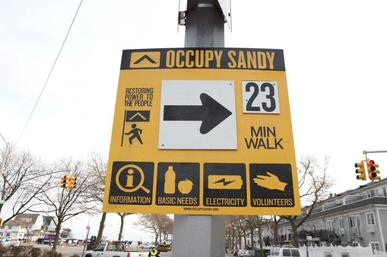Occupy Sandy was a grassroots relief effort that emerged in the aftermath of Hurricane Sandy, which struck the northeastern United States in October 2012. This superstorm caused widespread devastation, particularly in New York and New Jersey, and left millions of people without power, food, clean water, and shelter.
Occupy Sandy was an offshoot of the Occupy Wall Street movement, which had gained attention in 2011 for its protests against economic inequality and corporate power. After Hurricane Sandy hit, many Occupy activists shifted their focus to provide aid and support to those affected by the disaster.
They organised volunteers and resources to assist in relief efforts, including distributing food, water, clothing, and other essential supplies to those in need. They also set up community hubs and centers where affected individuals could access assistance and information about available resources.
One of the key strengths of Occupy Sandy was its decentralized and community-driven approach to disaster relief. It relied on the principles of mutual aid and solidarity, emphasizing direct action and cooperation among volunteers. Occupy Sandy demonstrated the potential for grassroots organizations to respond quickly and effectively to disaster situations.
